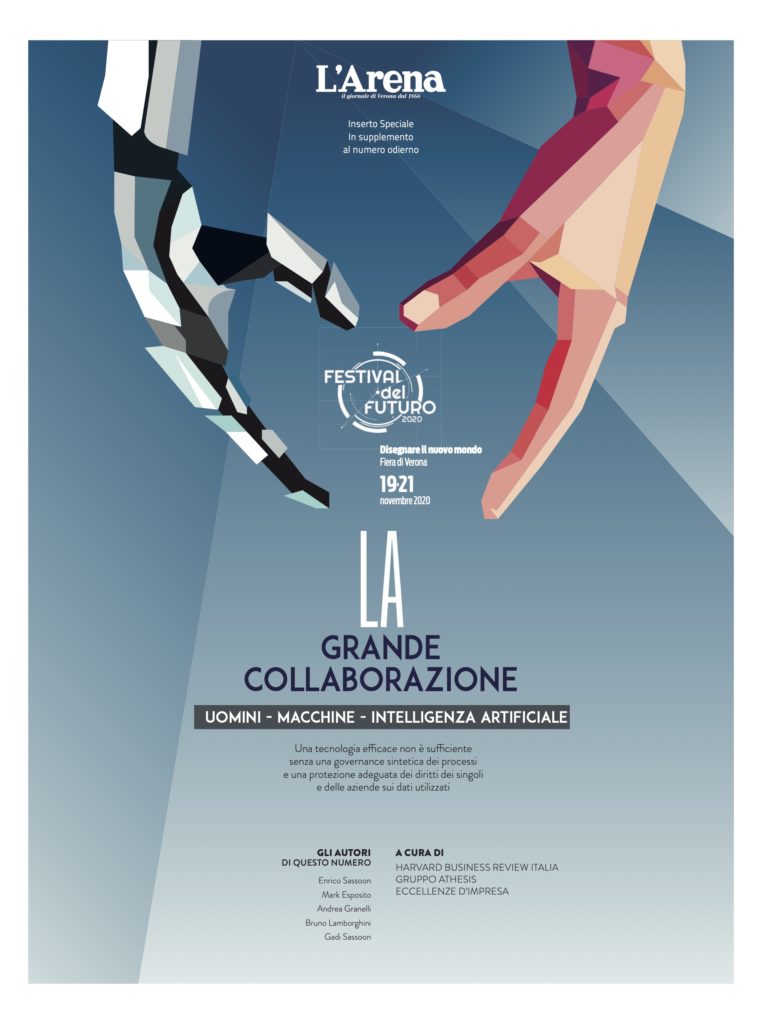
We have been talking about it for years and, more or less, we all have some idea of what the famous Artificial Intelligence is, often mentioned in articles and books as AI. But do we really know what it is? If you don't have a clear idea about Artificial Intelligence, don't worry. You are, in fact, in good company as you share this lack of clarity with most of the people in your city or, for that matter, any other city in the world. Yet, even if we do not notice it easily, Artificial Intelligence is now around us, it is already in our homes, in the sites we visit, in the contacts we take by phone and in the stores where we go shopping. And of course in our factories and offices, in trains and planes, but also in our cars.
In short, Artificial Intelligence exists and is here to stay and we must not fear its presence either today or in the future. In fact, technologists even invite us to drop the expression "Artificial Intelligence" and instead use that of "augmented intelligence" (we note, incidentally, the abandonment of capital letters). This is because even the smartest machines can't do much if they don't have human help. The robot in the factory can only operate after it has received valuable human instructions, and while its software can learn by iterating experiences, it lags behind humans incomparably. Its best performance is obtained in collaboration with people, which is why it has become preferable to speak of augmented intelligence, which is not that of the machine but, precisely, that of the man who uses it.
Of course, progress is rapid and daily. At home we talk to Siri or Alexa; when we call a call center we are often answered by a chatbot, an educated machine that is difficult to distinguish from a human being; in a shop we can be greeted by a facial recognition software that remembers our previous visits and shows us on the fly the products that may interest us, whether it is a car, a dress or a make-up. And a robo-advisor at the bank recommends an investment suited to our risk appetite.
The examples could be many but the picture is now clear. We live side by side with machines that are increasingly intelligent and above all capable of learning. They can do this because they run millions of iterations and collect data which they then analyze and filter to get to a higher stage. Or they may be equipped with neural networks that mimic people's brain processes. In fact, they use billions of data at breakneck speed to enrich their knowledge, share it with people, and improve at each next stage.
And tomorrow? An example known to all is that of the autonomous car which is technically already fully operational but which cannot yet be freely introduced. Partly because the cities are not yet ready, partly because cars, or rather their brains, are not yet capable of evaluating “ambiguous” situations. For example, what to do when both a passenger and a pedestrian are in danger at the same time who suddenly cross the road and run the risk of being run over.
These are very concrete "ethical" decisions that humans today know how to make, even if in many cases they are wrong. But that machines are not yet able to select. In short, artificial intelligence is welcome, and especially augmented intelligence. The important thing, however, is that the control of the technology remains firmly in our hands.
This is not necessarily a very easy task, but since the process is now unstoppable, the question must be faced with clarity. We need new kinds of skills and sensibilities, and an ability to look beyond and intuit implications and side effects. A capacity for evaluation that does not concern only the technical and economic areas, but also the legal, political, social, psychological ones. Only in this way can we talk about augmented intelligence.
Enrico Sassoon
Chief Editor of Harvard Business Review Italy
Summary
Insert no. 01 - THE GREAT COLLABORATION
Towards an anthropocentric digital knowledge by Mark Esposito
Deciding in the age of artificial intelligence by Andrea Granelli
The great promises of the augmented man by Enrico Sassoon
A challenge to be won is continuous learning by Bruno Lamborghini
Towards the hybridization of human intelligence and algorithmic power by Andrea Granelli
How much music meets artificial intelligence by Gadi Sassoon






